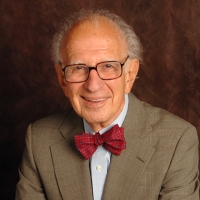Kavli Institute for Brain Science
The Kavli Institute for Brain Science at Columbia probes the complex network of brain cells and their connections. Led by 2000 Nobel laureate Eric Kandel, and co-director Rafael Yuste, the Institute uses advanced imaging technology to observe neurons, synapses, and neural circuits as they develop and function, and as they respond to learning. They examine the brain at the cellular, molecular, and systems level to understand how the nerve cells of neural circuits connect during development to control behavior, and how these neural circuits perform and are modified by learning and memory.
Research Areas
Specific areas of research include:
- Mechanisms that specify the identity of neurons and how they form their connections to give rise to neural circuitry during the development of the nervous system;
- The cellular functioning of the olfactory system, which processes the activity patterns of individual sensory neurons to produce the extraordinarily precise mammalian sense of smell;
- The physiology of cognitive processes such as visual attention, spatial perception, and decision-making;
- Anatomical changes in the brain, such as the growth of synapses, which occur during the learning process;
- Learning-related changes in signaling strength between synapses in the hippocampus, a region crucial to memory and one of the first parts of the brain to suffer damage with the onset of Alzheimer’s Disease;
- Multicellular patterns of activity that function as microcircuits in the cerebral cortex; and
- Functional magnetic resonance imaging (fMRI) of brain circuitry, with an eye toward clinical applications for personalized medicine.
The Kavli Institute encourages the interactions among these initiatives to achieve a set of common goals of integrated knowledge: learning not just how the myriad cells of the brain work, but how they work in concert to produce behavior, and how the neural circuitry of behavior is modified in response to different forms of learning.
